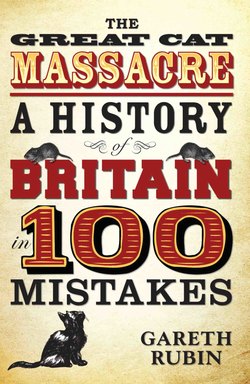Читать книгу The Great Cat Massacre - A History of Britain in 100 Mistakes - Gareth Rubin - Страница 14
На сайте Литреса книга снята с продажи.
A CASE TOO FAR – CHARLES DILKE EXCLUDES HIMSELF FROM GOVERNMENT, 1885
ОглавлениеThe sex lives of MPs never cease to amaze the British public and have been entertaining us for a very long time. Charles Dilke MP led the way in the Victorian era – his wife apparently put up with him conducting affairs but things went much more public than they had previously when his sister-in-law’s sister, Virginia Crawford, tearfully confessed to her husband that Dilke, the leading light of the Liberal Party, had ‘ruined’ her when she was a nineteen-year-old new bride, and that they had continued their affair for two years. Not only that, but he had taught her ‘every French vice’ and they had once had a threesome with the maid. What the maid had thought of it all she did not divulge.
Her husband, Donald Crawford MP, sued her for divorce and cited Dilke as a co-respondent. The case became terribly exciting – especially when Dilke claimed that he had never had an affair with Virginia, but he was conducting one with her mother. At the end of the trial, the judge gave one of the oddest decisions in English legal history – that Virginia had had an affair with Dilke, but there was no evidence that he had had one with her. As the public stood pondering this for a while, Dilke made a very foolish decision: he announced that he was going to sue to clear his name from the slur that he was the sort of man who would have an affair with his brother’s wife’s sister, when he was merely the sort of man to have an affair with his brother’s wife’s mother.
But he blundered in the legal application. Instead of bringing the case himself, he petitioned the Queen’s proctor to reopen the original case. This, ruled the judge, meant that he was not actually a party to the trial, merely a witness. So, throughout the week-long case, he was only allowed to sit mute while all sorts of allegations were made about him, and he was not allowed to dispute them one iota. His only chance to speak was when cross-examined about exactly what he had done with whom and where. He lost the case and Gladstone, who had been expected to name Dilke in the forthcoming Cabinet, made a single mark against his name: ‘unavailable’. The effect was far-reaching. Dilke had been the foremost of his generation in the Liberals. Without his leadership, the party ran out of steam and imploded, ensuring Tory governments for many years.
His decision might even have prevented Britain becoming a republic – Dilke was the last MP to suggest such a thing in the House of Commons, earning the eternal hatred of Queen Victoria – and had he gone on to become party leader and Prime Minister who knows what might have happened?
Years later, an inquiry was held. It decided that Virginia had been lying about the affair. Although nothing had happened after she had married, it is possible that she and Dilke had had an affair beforehand and he had reneged on his promise of matrimony. Virginia had therefore wanted revenge. So, when she needed a divorce from her husband because she had contracted syphilis from another lover, she decided to kill two birds with one stone.
